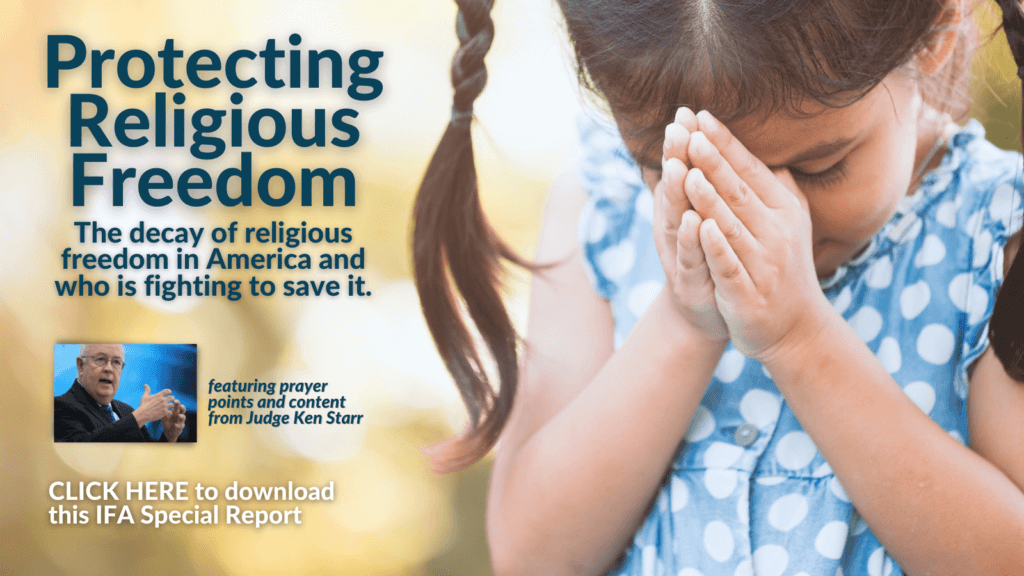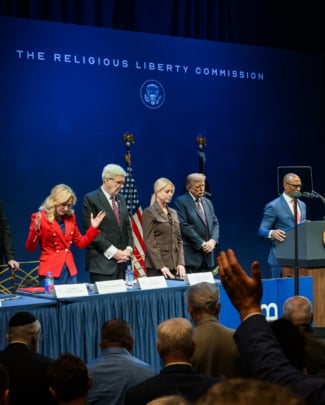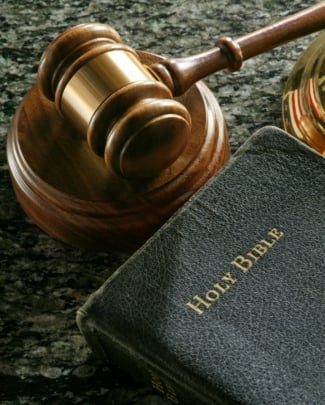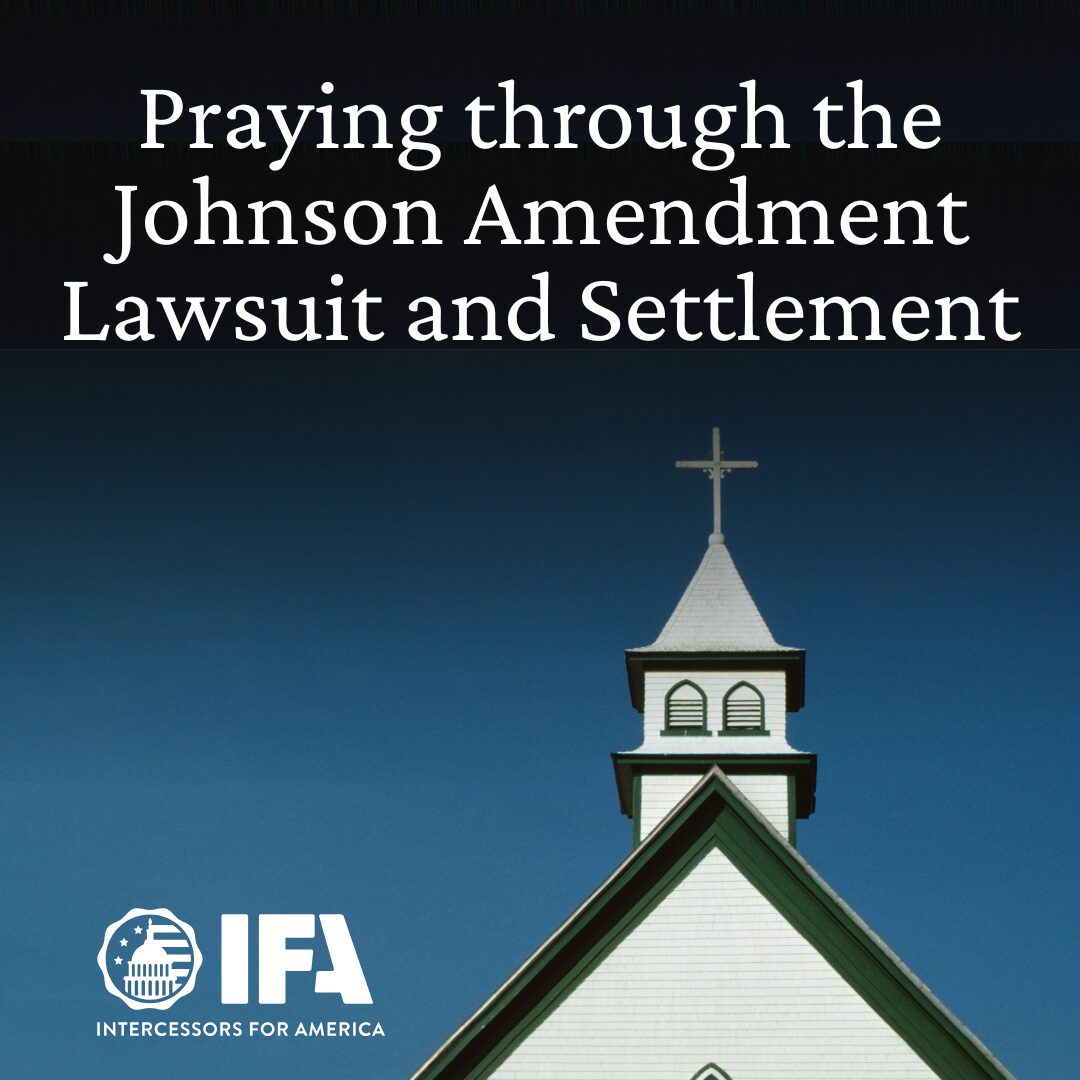SCOTUS Rules in Favor of Religious Freedom
SCOTUS Rules in Favor of Religious Freedom
The Supreme Court recently ruled in favor of Hal Shurtleff, whose request to raise a flag in Boston was denied due to its Christian meaning.
From Liberty Counsel. Today, the U.S. Supreme Court ruled 9-0 that the City of Boston violated the Constitution by censoring a private flag in a public forum open to “all applicants” merely because the application referred to it as a “Christian flag.” The High Court stated that it is not government speech, and because the government admitted it censored the flag because it was referred to as a Christian flag on the application, the censorship was viewpoint discrimination, and there is no Establishment Clause defense.
Justice Breyer wrote the opinion in which Chief Justice Roberts, Sotomayor, Kagan, Kavanaugh, and Barrett joined. Justice Kavanaugh filed a concurring opinion. Justice Alito filed a concurring opinion in the judgment, in which Thomas and Gorsuch joined. Justice Gorsuch filed a concurring opinion in the judgment, in which Thomas joined.
In Shurtleff v. City of Boston, Liberty Counsel represents Boston resident Hal Shurtleff and his Christian civic organization, Camp Constitution. Shurtleff and Camp Constitution first asked the city in 2017 for a permit to raise the Christian flag on Boston City Hall flagpoles to commemorate Constitution Day and Citizenship Day (September 17) and the civic and cultural contributions of the Christian community to the City of Boston, the Commonwealth of Massachusetts, religious tolerance, the Rule of Law and the U.S. Constitution.
The High Court wrote that “Boston did not make the raising and flying of private groups’ flags a form of government speech. That means, in turn, that Boston’s refusal to let Shurtleff and Camp Constitution raise their flag based on its religious viewpoint ‘abridg[ed]’ their ‘freedom of speech.’”
“We do not settle this dispute by counting noses—or, rather, counting flags. That is so for several reasons. For one thing, Boston told the public that it sought ‘to accommodate all applicants’ who wished to hold events at Boston’s ‘public forums,’ including on City Hall Plaza. App. to Pet. for Cert. 137a. The application form asked only for contact information and a brief description of the event, with proposed dates and times. The city employee who handled applications testified by deposition that he had previously ‘never requested to review a flag or requested changes to a flag in connection with approval’; nor did he even see flags before the events. Id., at 150a. The city’s practice was to approve flag raisings, without exception. It has no record of denying a request until Shurtleff’s. Boston acknowledges it ‘hadn’t spent a lot of time really thinking about’ its flag-raising practices until this case. App. in No. 20–1158 (CA1), at 140 (Rooney deposition). True to its word, the city had nothing—no written policies or clear in[1]ternal guidance—about what flags groups could fly and what those flags would communicate,’” the Court wrote.
In addition, the Court wrote, “Here, Boston concedes that it denied Shurtleff ’s request solely because the Christian flag he asked to raise ‘promot[ed] a specific religion.’ App. to Pet. for Cert. 155a (quoting Rooney deposition). Under our precedents, and in view of our government-speech holding here, that refusal discriminated based on religious viewpoint and violated the Free Speech Clause’” (emphasis added).
There are three flagpoles outside City Hall that fly the U.S., Massachusetts and Boston flags, plus a fourth flag on Congress Street, which runs parallel to City Hall. For 12 years from 2005-2017, Boston approved 284 flag-raisings by private organizations with no denials on the flagpoles that it designated as a “public forum.” Had the flag been referred to as anything but Christian, the city would have approved it. The flag itself was not the problem; it was the word “Christian” describing it in the application that was the issue. The year before Camp Constitution’s application (2016-2017), Boston approved 39 private flag-raising events, which averaged three per month. In 2018, Boston approved 50 private flag raising events, averaging nearly one per week. One included a flag of a private credit union.
The Justices commented on the longstanding test known as the “Lemon Test” which has been used to determine if a law violates the First Amendment. Its name comes from Lemon v. Kurtzman, in which the Court ruled that a Rhode Island law that paid some of the salary of some parochial school teachers was unconstitutional. This test has proven to be unworkable and has led to inconsistent and contradictory decisions on the constitutionality of 10 Commandment monuments and cross monuments like the “Peace Cross.”
Justice Gorsuch, joined in a concurrence with Justice Thomas, stated, “It’s time to let Lemon lie in its grave.”
Justice Gorsuch continued, “How did the city get it so wrong? To be fair, at least some of the blame belongs here and traces back to Lemon v. Kurtzman, 403 U. S. 602 (1971). Issued during a ‘bygone era’ when this Court took a more freewheeling approach to interpreting legal texts, Food Marketing Institute v. Argus Leader Media, 588 U. S. ___, ___ (2019) (slip op., at 8), Lemon sought to devise a one-size-fits-all test for resolving Establishment Clause disputes. That project bypassed any inquiry into the Clause’s original meaning. It ignored longstanding precedents. And instead of bringing clarity to the area, Lemon produced only chaos. In time, this Court came to recognize these problems, abandoned Lemon, and returned to a more humble jurisprudence centered on the Constitution’s original meaning. Yet in this case, the city chose to follow Lemon anyway. It proved a costly decision, and Boston’s travails supply a cautionary tale for other localities and lower courts. The only sure thing Lemon yielded was new business for lawyers and judges.”
“Ultimately, Lemon devolved into a kind of children’s game. Start with a Christmas scene, a menorah, or a flag. Then pick your own ‘reasonable observer’ avatar. In this game, the avatar’s default settings are lazy, uninformed about history, and not particularly inclined to legal research. His default mood is irritable. To play, expose your avatar to the display and ask for his reaction. How does he feel about it? Mind you: Don’t ask him whether the proposed display actually amounts to an establishment of religion. Just ask him if he feels it “endorses” religion. If so, game over,” wrote Gorsuch.
In his concurrence, Justice Kavanaugh wrote, “A government violates the Constitution when (as here) it excludes religious persons, organizations, or speech because of religion from public programs, benefits, facilities, and the like.”
In his concurrence, Justice Alito wrote, “I agree with the Court’s conclusion that Boston (hereafter City) violated the First Amendment’s guarantee of freedom of speech when it rejected Camp Constitution’s application to fly what it characterized as a ‘Christian flag.’ But I cannot go along with the Court’s decision to analyze this case in terms of the triad of factors—history, the public’s perception of who is speaking, and the extent to which the government has exercised control over speech—that our decision in Walker v. Texas Div., Sons of Confederate Veterans, Inc., 576 U. S. 200 (2015), derived from Pleasant Grove City v. Summum, 555 U. S. 460 (2009). See ante, at 6–12. As the Court now recognizes, those cases did not set forth a test that always and everywhere applies when the government claims that its actions are immune to First Amendment challenge under the government-speech doctrine. And treating those factors as a test obscures the real question in government-speech cases: whether the government is speaking instead of regulating private expression.”
Justice Alito continued, “But courts must be very careful when a government claims that speech by one or more private speakers is actually government speech. When that occurs, it can be difficult to tell whether the government is using the doctrine ‘as a subterfuge for favoring certain private speakers over others based on viewpoint,’ id., at 473, and the government-speech doctrine becomes ‘susceptible to dangerous misuse’….To prevent the government-speech doctrine from being used as a cover for censorship, courts must focus on the identity of the speaker. The ultimate question is whether the government is actually expressing its own views or the real speaker is a private party and the government is surreptitiously engaged in the ‘regulation of private speech.’ Summum, 555 U. S., at 467…. Consider first ‘the extent to which the government has actively shaped or controlled the expression.’ Ante, at 6. Government control over speech is relevant to speaker identity in that speech by a private individual or group cannot constitute government speech if the government does not attempt to control the message. But control is also an essential element of censorship.”
Liberty Counsel’s Founder and Chairman Mat Staver said, “This 9-0 decision from the Supreme Court strikes a victory for private speech in a public forum. This case is so much more significant than a flag. Boston openly discriminated against viewpoints it disfavored when it opened the flagpoles to all applicants and then excluded Christian viewpoints. Government cannot censor religious viewpoints under the guise of government speech.”
For more information on the case, visit www.LC.org/flag.
Are you encouraged by this victory for religious freedom? Share this article to encourage others!
(Press Release from Liberty Counsel. Photo Credit: Getty Images)
Partner with Us
Intercessors for America is the trusted resource for millions of people across the United States committed to praying for our nation. If you have benefited from IFA's resources and community, please consider joining us as a monthly support partner. As a 501(c)3 organization, it's through your support that all this possible.


We use cookies to ensure that we give you the best experience on our website. If you continue to use this site we will assume that you are happy with it. Privacy Policy





Comments
No comments have been posted yet; you can be the first!